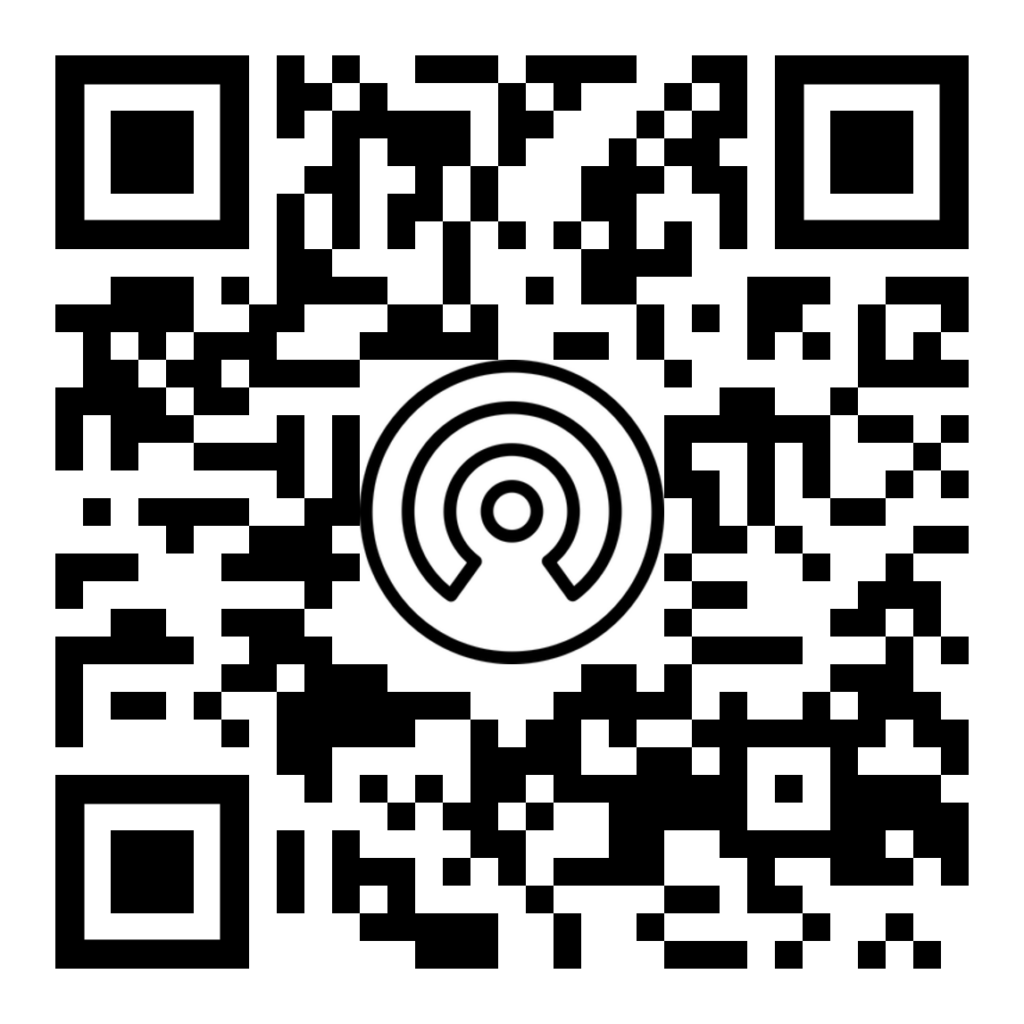[00:00:00] Jason Tucker: This is episode number 436 of WPwatercooler, a new dimension of WordPress
[00:00:07] Sé Reed: That was probably loud. Sorry about your ears.
[00:00:10] Jason Tucker: I’m Jason Tucker. You can find me at Jason Tucker on maybe Twitter. We’ll see if it lasts the rest of the day.
[00:00:17] Sé Reed: I’m Sé Reed at Sé Reed, Sé Reed Media on all the things, not just Twitter. I’m, I’m taking over the internet with it.
[00:00:24] Jason Tucker: You can go and subscribe to us as an audio podcast on Audible, on Apple Podcasts and all those places. And you can also go hang out with us in Discord, find the links down below in the description, and you can do that there. We have a friend on the show today,
[00:00:42] Sé Reed: I apologize in advance for my cat if you can hear it. I apologize. Okay. I don’t have my crisp on because I don’t wanna shut my computer off.
[00:00:52] Jason Tucker: It’s all good,
[00:00:52] Sé Reed: one or the other. Anthony, tell us about yourself. Hello.
[00:00:58] Anthony Burchell: Oh man, . Hello. Thanks for having me, . Yeah. Um, I mean, tell, tell me, uh,
[00:01:05] Sé Reed: I mean, okay, so your, um, I, I, I said we would get this outta the way at the beginning, so let’s get outta the way your day job. Your, your like, you know, WordPress day job is,
[00:01:16] Anthony Burchell: Yeah, I work at WP Engine and I help, uh, build advanced custom fields, so a c F and my team builds that. So yeah, I’ve been, um, I’ve been, I’ve been with WP Engine for, oh, almost eight years, I guess. Eight years and a few months. So it’s been a. Long time and been doing a lot of fun stuff over the years.
[00:01:37] Sé Reed: Um, anyone who does WordPress, anything past, like any sort of amateur or like end user level is like grateful to a c F and everything that it brings to the table . So
[00:01:47] Anthony Burchell: That’s awesome. Yeah, I’d love to hear that. It’s so cool how many sites are using it. It it blows my mind every time I.
[00:01:54] Sé Reed: I literally put them on a site that I was just spinning up for like, like for like a week. It was like a little microsite and I was like, well, I just, I need, I need this meal anyway. But that’s not why we’re here today. We’re not here to about acf. We’re here to stand about something completely different.
[00:02:12] Anthony Burchell: But I do stand. I do
[00:02:13] Sé Reed: Oh no, I am still standing. You’ll see the stand during this episode cuz I am hyped on what you were doing. So can you tell us about your side hustle? That is, um, a whole thing, whole world,
[00:02:26] Anthony Burchell: Yeah. So, um, Yeah. So I, uh, a couple years ago, um, with uh, my, my co-founder, uh, Ben Moore, we started a company that was doing metaverse hosting. And this was during the pandemic when my wife lost her job. We needed to make a fill in the hole that we, you know, we weren’t making as much money. So this was an opportunity and it worked out.
[00:02:45] It got us through. Um,
[00:02:47] Sé Reed: good luck picking the Metaverse and not Web three
[00:02:51] Anthony Burchell: yeah. Yeah, yeah.
[00:02:52] Sé Reed: That was a good, that was a good choice.
[00:02:55] Anthony Burchell: There was a brief period where even the metaverse sounded kind of gross to us, and it was around that time that like we weren’t sure because with the rebranding of Facebook calling themselves meta, they were kind of owning the word.
[00:03:06] But prior to that, everyone was kind of getting on board with that word and, and it, while it’s
[00:03:10] Sé Reed: cool word.
[00:03:10] Anthony Burchell: like cyberspace is a lot cooler in my opinion, but it’s
[00:03:14] Sé Reed: Cyberspace is like, uh, like, like neuro maner or like,
[00:03:18] Anthony Burchell: Yeah.
[00:03:19] Sé Reed: Like cyberspace is like, I’m in like, uh, who is that? Isaac Azimov of like, you know, sci-fi novels.
[00:03:25] Anthony Burchell: And I like, I like that one. It’s,
[00:03:27] it’s nice. It, it’s not owned by some corporate, you know, thing. Um, but Metaverse is fine.
[00:03:33] Sé Reed: I could, I could get into that
[00:03:36] Anthony Burchell: so the way I feel about it is whatever people are using, I’m, I, who am I to try and steer people’s language and,
[00:03:41] Sé Reed: I mean, that’s not what Mark Zuckerberg said. He literally was like, who I steal steer people’s language,
[00:03:50] Jason Tucker: and now you have
[00:03:50] Anthony Burchell: know it. To some credit, they, they’ve done a lot of, uh, a lot of good for the space. I mean, they do a lot of work with React. There’s, uh, a lot of work they’ve been doing with the browser space for WebEx R and uh, and yeah, so, so back to like the, the, the company and how we got to where we are now. Um, we were doing, uh, Hosting for a platform called, uh, or not for, but using a platform called Mozilla Hubs and it was called Hubs Cloud.
[00:04:15] And it allowed people to have these like virtual events where people came together and you have microphones, spatial audio, people at avatars like that kind of thing. Um, and
[00:04:24] uh, and yeah, it was fun.
[00:04:26] Sé Reed: yeah, I played with it. I set up a whole world I was looking at that. I was hosting a bunch of um, uh, Spoken word, poetry, virtual events, and we were experimenting with formats and you know, past Zoom and all of that stuff was so nascent and new. It wasn’t anything that I felt like I could deploy, but it was so much like, oh, this was almost just ready.
[00:04:48] It wasn’t quite ready.
[00:04:50] Anthony Burchell: Yeah. And so what we made is as a, as a, a one click, like a managed provider for that, where people just kind of logged into our portal, clicked one button, pointed, one DNS record, and they were live. Um, But it, it, it was kind of expensive. Like it’s a great platform, don’t get me wrong. And they’re, they’re actually about to launch a really big revamp that makes it much more, uh, uh, simple in the architecture.
[00:05:10] But what we had found is a lot of people wanted to do very custom things, and, and every time they would customize it, it basically forked the software and it was just hard to, to manage for us. So we didn’t see a really good path to. They have a great path to scaling it cuz they’re more tied into the software and, you know,
[00:05:26] controlling the destiny there. But yeah, exactly. So, uh, but, but since then, um, we’ve, we’ve still been doing the hubs thing. I’ve been releasing some open source code on how people can do, like, you know, the web three wallets and all of that stuff on top of it. But I, I saw a huge opportunity in WordPress. I’ve been trying to crack at this for a long time and getting WordPress more integrated with the, the metaverse or just 3D spaces in general.
[00:05:50] And, uh, and
[00:05:51] I, I.
[00:05:51] Sé Reed: right? Like are they, like is there any integration other than what you’re doing? Like I am not.
[00:05:57] Anthony Burchell: Seen any, but the, the way that I was doing it prior to building, uh, the plugin that we’re gonna talk about in just a moment, uh, the it, I was using the REST API to consume inside of like unity apps or native apps inside of, uh, augmented reality. And I, I built a, a music synthesizer app and AR on iOS and like, that’s still in the, in the repository there that they have.
[00:06:17] But it, it, it, I never found that I. It just felt too disconnected. Like I was editing content on a WordPress expecting to consume it, and it just felt like I was forcing something that really shouldn’t have been the right way to do it. So, uh,
[00:06:31] Sé Reed: PHP code inside the editor. You’re like, this could work, but like, should I do this? I should definitely not do this.
[00:06:38] Anthony Burchell: Yeah, so I, I, I switched over to kind of exploring, um, well, I, I, I make a lot of 3D objects and I like to share ’em with friends, but I didn’t have a great way to like display the object. I could upload it to Sketch Pad or something like that, but it didn’t really. It was, uh, hard to, to show people, and no one wants to really go to fe sketchfab and look through the viewer and click a button to make it load and all that.
[00:06:58] Anyway, in March, I, I released a plugin that just, it was a very simple model viewer, and it allowed you to upload a single object and you could view it in vr, ar, or just flat on your screen. And, um,
[00:07:09] and that
[00:07:10] Sé Reed: At an address. It’s like at a browser address.
[00:07:12] Anthony Burchell: yeah, yeah. So just in a post,
[00:07:14] Sé Reed: So at url, right?
[00:07:16] Anthony Burchell: Yeah, it’s, it’s, so then you would hit the post and it would have that, and they could click enter in vr and, and here I’ve got a headset, like they could just click on, uh, put the headset on, click on the entering VR button, and they’re in.
[00:07:27] Um, and, and that was great and good. And, and I’ve, I’ve enjoyed doing that. I’ve built up this really. Really gross website that’s just got a bunch of links and objects and things. It was just basically a sketchpad. And, uh, and I started finding that, that WordPress is pretty ripe for the, the builder experience to be entirely in WordPress, or at least major, mostly in WordPress.
[00:07:47] So, uh, I I, I, two months ago, in September, I think
[00:07:51] is when I, I, um,
[00:07:53] Sé Reed: So exciting. Sorry, I’m just like
[00:07:54] Anthony Burchell: I revamped it and, um, And, uh, so I, I thought like maybe we can make an editor and use blocks and inner blocks. So there’s this, like, the concept of, of, uh, there’s like a container block and you can define what blocks go inside of it.
[00:08:09] And, um, and I, I built up just a very small library of 3D blocks that, that I wanted to load inside of the container. Um, but then I started getting deeper down the rabbit hole and I was like, well, now yet I’d be able to click on the object, drag it, scale it, position it, you know, that kind of thing. And, uh, it got really deep.
[00:08:24] So over the last two months I’ve been building this editor and, and it’s now done. Uh, it will have multi-player features. Um, a lot of stuff is coming in the future. It’s configuration.
[00:08:38] Jason Tucker: That’s so cool.
[00:08:39] Sé Reed: Losing.
[00:08:40] Anthony Burchell: Like DNS is really hard. Yeah. . So I, I, I had found that one of the hardest parts of, of getting Metaverse software online in the past was you have to tell somebody to point dns and they’ve gotta trust that where they’re pointing it is, is something that they’re in control of and is safe and,
[00:08:56] Sé Reed: They
[00:08:57] Anthony Burchell: uh, complies with.
[00:08:58] Sé Reed: Also,
[00:09:00] Anthony Burchell: Yeah. And, and, and a WordPress site. Somebody’s already done that once at least, you know, so the, the site is already live. The, the opportunity is just making it one click, installable and activate. And, um, and so yeah, we’ve, we’ve accomplished that. Uh, we have network settings, but, uh, I, I have them disabled currently in the plugin, cuz I wanna responsibly launch this because it, it will give multiplayer out of the box through web RTC using a service that we’re using.
[00:09:25] Uh, it’s, it’s a, it’s a, um, Uh, a library that, um, Matt named Greg Photo built. That is a web RTC layer that just handles the signaling through a CloudFlare worker where, uh, two people can enter a room, they connect through the worker, and then they’re connected through web RTC so they can hear each other and see each other’s positioning in the world.
[00:09:45] And the, the avatar system right now in it’s very basic state is using Avatar. So if you’re logged in, uh, it’ll have a little ring
[00:09:52] and pull your avatar into it.
[00:09:54] Sé Reed: Oh my God. Are we gonna have 3D avatars? Like emojis? I hate emojis, but I’ll definitely make a 3D avatar Avatar. Is that next? That’s totally mixed. Oh my god. Hey, maybe we can use, imagine that AI generator profile generator to generate our avatars for our metaverse inside of your metaverse
[00:10:17] Jason Tucker: You, you wanna spin up a demo for us?
[00:10:20] Sé Reed: Wait, wait, I have a
[00:10:21] Jason Tucker: Yeah. While you’re doing that, well,
[00:10:22] Sé Reed: While you’re spinning up the, that, my question is hosting, so you were saying CloudFlare, right? Like, like, so people are connecting in the cloud, right? So how does that impact the servers? Like what, you
[00:10:37] Anthony Burchell: Yeah. So, uh,
[00:10:39] Sé Reed: on a shared server?
[00:10:40] Like what is.
[00:10:42] Anthony Burchell: yeah. Yeah, it can be anywhere because you’re just connecting peer to peer. So, um, so yeah, lemme just show really quick, like the editor.
[00:10:48] Sé Reed: I’m losing my mind. This is just the coolest thing. I want people to notice right now that they’re inside. If you can’t see this on your screen, because you’re listening as a podcast, you need to look at this. Just come look at the video just this one time. Uh, because we are right now inside of, um, an editor, a post essentially, and this is like, I, it’s unbelievable.
[00:11:10] We are literally in a 3D environment. Can you
[00:11:12] Jason Tucker: a right, the right sidebar is there
[00:11:15] Sé Reed: Yeah, this is,
[00:11:16] Jason Tucker: yeah, it’s there.
[00:11:17] Sé Reed: I like can’t, I can’t control my excitement about this. So can you go through maybe some of your block settings and what’s happening on the screen?
[00:11:24] Anthony Burchell: Yeah. Yeah. So here we have, uh, this is the main container. If I look at the hierarchy view, you see that it’s a 3D environment, and inside of this 3D environment are a bunch of inner blocks. And right now I’ve got two models and a portal. and um, and there’s a host of, or a suite of blocks
[00:11:39] Sé Reed: Oh my gosh.
[00:11:40] Anthony Burchell: out already.
[00:11:41] So there’s the 3D model block, there’s a sky block image, video, audio portal text, and a spawn point. Yeah. So you can pick where people load in though right now I got a little bug in that I’ll admit. Um, so yeah,
[00:11:53] this is
[00:11:54] Sé Reed: dare you. How dare you have a.
[00:11:58] Anthony Burchell: So the, the container itself, um, you, you define a single object to be your like base layer.
[00:12:04] So I’ve got this like grid right now, and that’s relatable, meaning you can walk on it. Um, but there are other, like, you can build more complex spaces that have like, uh, like here’s another space that I’m in, uh, right now, that if I like walk over to this ramp, the physics and the game or the game engine or the framework allow you to walk up something and get over to, you know, like maybe some screens
[00:12:24] or whatever, um, or.
[00:12:26] Sé Reed: fyi.
[00:12:27] Anthony Burchell: Yeah, it is Gotta be accessible on the web,
[00:12:31] even
[00:12:31] Jason Tucker: can
[00:12:32] Sé Reed: so we’re basically in the
[00:12:33] Anthony Burchell: I’m up here up really high.
[00:12:35] Sé Reed: inside WordPress. And I like, cuz the Metaverse. I’ve always like, I love the Metaverse. I think it’s fascinating. I love playing like go miniature golf in wild places. It’s really fun. But, um, I really continually feel horrible about being inside anything relating to Facebook.
[00:12:51] And so this is just. I, I, it, it, it’s like the open source part of me plus this part, the metaverse part. It’s like what you’re doing is just amazing. This is so exciting. You’re open, you were saying earlier, you’re open sourcing your stuff, right? Or
[00:13:07] Anthony Burchell: Yeah, so this is
[00:13:08] Sé Reed: free. The free
[00:13:09] Anthony Burchell: the word. Yeah, it, this is in the WordPress plugin repository. Everything you’ve seen so far, uh, is free and always will be unrestricted and free. Um, I believe it’s extremely important for the metaverse to be open, and part of that is at least having the ability to do basic things like put objects in a world images video, like just the core experience.
[00:13:29] Everything on top of that is where I hope to monetize is, is what can I do that’s specific to an experience?
[00:13:35] Um, so.
[00:13:35] Sé Reed: this is like, we could make your own second life instance and like, like, like when, but the person doesn’t have to be inside second life with their whole second life, um, world, right? Like that’s essentially a thing. It’s like cross platform because you’re just like, here is this, here’s this address, and you can go to it.
[00:13:54] Basically, you can go to it on your browser in like normal space like this.
[00:13:59] Anthony Burchell: Mm-hmm.
[00:14:00] Sé Reed: inside of your, uh, what devices, your
[00:14:04] Jason Tucker: Yeah, if you’re in the headset. Yeah. So if you’re, if you do have that on and you have the in browser turned on, like if you load up the in browser with the device on, you can tap on the interworld and then it goes full screen like that.
[00:14:17] Anthony Burchell: Yeah, so here’s a video of that. So here’s the browser in the, in the state of loading the page
[00:14:22] Jason Tucker: the language that defines that? Like what do you, what do you call that when you go from pushing the button to enter the world and going from being a in browser experience to a full screen experience?
[00:14:33] Is there, like, is, is there some HTML that’s involved in that? The WebEx R part of it? Okay.
[00:14:39] Anthony Burchell: Yeah, so it’s WebEx r that’s the sort of open common layer that everyone has been using this with. Um, and, and I, it, it’s, it’s standard across all devices. Like right here in this video that I’m showing this, I’m using the vibe flow, which I think is probably the most underpowered.
[00:14:55] Modern device that you can get. And it looks great. It performs great. Um, and, and this is a pretty complex scene. This is a new feature that I launched just last week, I believe, or this week, um, that adds open brush support. So there was this app in, in, um, for that a lot of people were using on, on their Oculus quest, I believe it’s on every platform.
[00:15:16] Um, but it’s called Tilt Brush. And, and Google kind of abandoned it or, or passed it off. But, uh, a team called, uh, uh, Casa, I C O s A. Um, they, uh, picked up the, uh, the, the software and have been maintaining it since then, and they’ve been building all kinds of new features. But part of the, the, the, uh, efforts that they’ve been, uh, taking on is, is a library where you can embed those open brush creations.
[00:15:42] You’ll see that these brushes are animated. Um, Putting those in a way that people can add to their apps and render those sculptures in, in a headset or in a 3D experience. So, um, yeah, so this is a, this was a very, like, this is an example of a, of a sculpture somebody built. They could export that out and put it into their WordPress site now and, and do some really interesting things.
[00:16:06] Sé Reed: I can’t even, I’m
[00:16:07] Jason Tucker: what Jimmy Fallon was using on, you know, his show of, you know, getting people to start using this sort of sort of thing. So Cool. I love
[00:16:15] Sé Reed: I mean, this is this, what you’re building is the thing that connects people, will connect people to the metaverse because I think the, the, the, um, , you know, with the, the Oculus and all that, it’s very much just like, of course with Facebook, a walled garden, you know, you, you turn it on and you’re not creating so much as you are just, you know, within, uh, the, the worlds that they’re giving you.
[00:16:39] So you’re playing or you’re looking at stuff, you know, or you’re, or you’re, you might be engaging, but you’re not creating, and this enables. Artists and, and you know, scientists. Um, and, you know, just like a whole world of people who are creating things, even content creators, to, um, create and participate in the metaverse, which like, I don’t, I don’t feel like there is.
[00:17:05] there is like, I feel like the, the barrier to entry of the metaverse, like it’s, it’s like a portal you can’t find, right? Like it’s like hidden in something and you need a special viewer to get it or whatever. But this, this makes because of how accessible WordPress is, you know, this makes the metaverse and creating a, just unbelievably accessible to people.
[00:17:27] I, I am,
[00:17:28] Anthony Burchell: Yeah.
[00:17:29] Sé Reed: I just,
[00:17:30] Anthony Burchell: Here’s something I’ll show off. That’s kind of cool. Um, so, so
[00:17:32] Sé Reed: Show it all off. I’m so stoked.
[00:17:35] Anthony Burchell: So I, I can click on this and using just the, the, the native Gutenberg experience, I can hit command C and I have just copied everything that’s in here to where I can go create a new post and just paste it.
[00:17:48] Sé Reed: oh
[00:17:48] Anthony Burchell: So you can make your templates of rooms so easily and, and, you know, give it a title, publish that, and let’s just see what happens.
[00:17:55] So you publish it, you view the post. , I can load the world and I’m in the world and there’s everything. Whoops. I just walked into a portal, so this is
[00:18:05] Sé Reed: over that portal. Just jumped out at you
[00:18:08] Anthony Burchell: Yeah, it’s right there. There it is. So this is actually an example of traversal.
[00:18:13] Jason Tucker: That’s a
[00:18:14] Anthony Burchell: then you can click here. So then you walk in here and now I’m inside there.
[00:18:18] I can load that and now I’m inside of this
[00:18:20] Jason Tucker: nother page.
[00:18:22] Anthony Burchell: And then I can go over
[00:18:23] Jason Tucker: is
[00:18:23] awesome,
[00:18:24] Anthony Burchell: you know, keep going,
[00:18:25] Sé Reed: I just, I know I’m freaking out, but like I was already freaking out. Cause I’ve been following you on Twitter, r i p Twitter, um, for a while now, and seeing you post this stuff, but hearing you explain it and walk through it is just, I’m like losing my mind.
[00:18:40] Jason Tucker: but wait,
[00:18:40] Sé Reed: really excited about stuff that’s happening in WordPress these days, like all the diversity stuff, but, This is exciting.
[00:18:47] Like it’s open source, like we can, like,
[00:18:49] Anthony Burchell: new.
[00:18:50] Sé Reed: it’s new, but it’s also like,
[00:18:53] Jason Tucker: Here’s
[00:18:53] the sky background.
[00:18:54] Sé Reed: it’s not creating for, for, you know, some megalomaniac billionaire. It’s not within those wild gardens. Like this is, this is the future of, okay. It’s gonna sound really, um, extreme, but the future of humanity. like, this is like where we’re all, you know, the, the.
[00:19:14] bringing the 3D and the metaverse and this technology to people, just like with WordPress, you know, bringing the ability to publish and put your words out there, you know, democratizing, publish, publishing. You know, we could debate about, you know, whether or not we do that properly, but like, that’s the idea and that’s what you’re doing here.
[00:19:35] You’re like literally democratizing the metaverse,
[00:19:37] Anthony Burchell: the metaverse. Yeah, that’s the thing. Yeah, that’s So that, that’s a couple, that’s a
[00:19:42] couple phrases that we latch onto in our. Our marketing is like democratize the metaverse. But, uh, but also like the, the biggest one I think that, that I, I wanna shift people’s thinking on is a post is a place, every single URL is a place and can be a place.
[00:19:56] So, uh, the, and that’s where like demystifying the metaverse is in is, is extremely important. Uh, because I think what part of what Facebook did early on that was not great, or I don’t know if they did it intentionally, but it just felt complicated and, and it didn’t
[00:20:12] feel like I
[00:20:12] Sé Reed: do it intentionally? Yes. Yes. Do they lock people away from their technology on purpose? Yes. Yes, they do. I, uh, anyway,
[00:20:20] Anthony Burchell: they
[00:20:21] I, I don’t, I, I like to, I like to assume the best and I hope that they’re go cuz they have done a lot of great things for,
[00:20:27] Sé Reed: I’m over assuming the best about megalomaniacs who run tech companies over it. Okay.
[00:20:33] Anthony Burchell: Yeah.
[00:20:33] Jason Tucker: so what are the parallels with, it’s like, what, what are some of the, the analogs or the parallels here with, with existing WordPress stuff working in this space? During the pre-show, you were talking about some of those parts could, could. You kind of jumping in into some of that, like the purse, for
[00:20:50] Anthony Burchell: Yeah. So you’re saying like
[00:20:50] Jason Tucker: if you don’t mind, watch. Yeah. How
[00:20:54] Anthony Burchell: yeah, so W
[00:20:55] Sé Reed: You’re gonna go walk over to your secret portal over here. I’m losing my mind. This is like, feels like. And one, it’s like, uh, from the nineties, maybe the eighties, like when you would walk through, um, you know, the worlds and you would advance a few bo and then you’d like turn left and then you’d like, go ahead.
[00:21:11] Did you ever play those games like on old, like Apple two
[00:21:13] Anthony Burchell: totally.
[00:21:14] Sé Reed: but like, you couldn’t, again, you couldn’t, I couldn’t reach that stuff as a kid, but this is like, like now you can make it, made it
[00:21:23] Anthony Burchell: Yeah.
[00:21:23] Sé Reed: to make it inside of WordPress.
[00:21:26] Anthony Burchell: and
[00:21:27] Sé Reed: just gonna
[00:21:27] Anthony Burchell: Yeah, and, and I’ve, I’ve put in like 20 blocks at a time and nothing really, it doesn’t, it doesn’t get mad at it. Um, something we were talking about before the break that I think is really important to, to highlight is, um, uh, this is very much inspired where Vrml was, was kind of an attempt at finding a markup language that could define spaces.
[00:21:46] And um, lately I’ve just come to the realization that H T M L just needs to be. It just needs extra properties like an image, right? Like, why don’t we just use the existing specification for HTML images and just add position data, scale data, whatever makes sense for the 3D world. So I’m, I’m kind of doing that here where if you click on image block, you can see, you can control if it’s got transparency, um, the X, Y, Z location, the XYZ rotation, the scale, um, and all of that can be controlled.
[00:22:15] Outside of the block. So something I was, I was highlighting also before, before the show is if, if you click on something and you move it, it is updating the block parameters that are in the inner block here. So if I, like, if I move this over and I click on image block, these values all change based on what I did.
[00:22:32] So you can
[00:22:33] Sé Reed: Like drag drop, 3D drag and drop.
[00:22:36] Anthony Burchell: Yeah, so you can hit the T key to like translate something. Um, you can hit the RQ to rotate something, uh, and then you can hit the s key to scale something. So then it changes the gizmo and what it can do. And everything is updating on the block and the inner blocks.
[00:22:52] So it’s very native to WordPress. You can, you can, um, rearrange the block. So if I like, uh, let’s see if I get open the hierarchy, I. Change the order and it’ll change the order here. These are just blocks. This is very native. And, and I felt like it’s important for that because, um, Gutenberg opened up this, this opportunity and, and I think it’s, it’s important to use it and try and find these standards so that everyone can start building experiences like this.
[00:23:17] Cause uh, I think right now, just as Gutenberg sits, it, it caters heavily to this kind of experience. I didn’t have to do any hacky things for, uh, to. Gutenberg, uh, components. Everything’s in the sidebar.
[00:23:30] Sé Reed: I mean, isn’t that.
[00:23:31] Anthony Burchell: the hierarchy.
[00:23:33] Sé Reed: it’s in React. Right? It, that’s what so much of, like, that’s what all of the, the meta world is, not me, not the metaverse, but literally meta, like Facebook meta, we’ll, just never, we’re always gonna call it the company formally known as Facebook. Um, they, uh, I mean that’s what it’s based on, right?
[00:23:52] Their whole world, Oculus and all
[00:23:55] Anthony Burchell: kind of like they, so they’ve got Horizon, they’ve got their, their platform called Horizon Worlds. Um, I think, like, I think the fatal flaw with that is that people want to own it. If, if at minimum they want, they want their domain to point to the world. At minimum, I think that’s the thing that people feel a sense of ownership is when I go to X domain, I see my content and I can control what that content is.
[00:24:16] That’s what’s most important. And I think where they’re falling short is they’re trying to get everyone to their URLs, their, their, uh, apps, and that kind of, it just doesn’t feel like. ownership. And I think that’s a big part of, of, of the metaverse and not, not like web three token ownership. I just mean feeling like you own the space, like you control the space that no one can jump in and, and, you know, watch you and collect data on you.
[00:24:39] This is all inside of your own site. And, and even with the multiplayer features that I’m adding, I’m not getting any data on like what people. Talking to each other through like the web RTC layer. I’m not, I’m not collecting data there that people are talking peer to peer. It’s just that the signaling connects them.
[00:24:55] Um, and, uh, yeah. So
[00:24:57] Sé Reed: It’s like
[00:24:57] Jason Tucker: Are Anthony, are you gonna be doing patterns in this?
[00:25:01] Anthony Burchell: yes,
[00:25:02] Jason Tucker: Are you gonna have like a car? Are you gonna have like a car
[00:25:05] Sé Reed: oh my God.
[00:25:07] Jason Tucker: and or a house. That’s the pattern in, in
[00:25:09] Sé Reed: can just make patterns and then like share them all.
[00:25:13] Anthony Burchell: be a, that’s gonna be a plan. So I’ve, I’ve got right now this little sample asset library for people to just download some very easy objects to get started with. Like, you can all of these, like, this is a good example of a 3D gallery too. Um, uh, but yeah, so, uh, I want to give people starter objects and with, with the pro, uh, uh, update that I’m gonna be releasing hopefully in the next month.
[00:25:34] I’m making pro blocks already, so I, I, I can. There’s going to be a WooCommerce block. There’s going to be a more advanced video block where you can pick the mesh shape of the video. So you could do really intricate things.
[00:25:47] Sé Reed: okay. You people will be able to create a store and put their product in a store and people can go and experience the, the, the design and the curation of the store past a list on a website,
[00:26:02] Anthony Burchell: Yeah, and, and that’ll be done through patterns. So you could, uh,
[00:26:06] Jason Tucker: theater for WPwatercooler and you could watch WPwatercooler and pick which one you wanna have. Play up on the big screen.
[00:26:12] Sé Reed: That’s what I was doing in, uh, that’s what I was doing in, uh, in the OG Mozilla labs. And I felt like, I was like, this is silly. All I’m doing is you’re coming in a 3D world and then you’re looking at a zoom . What is that? Is not, that is not, that is why I stopped doing it. Cause I was like, this is, this is not the right use for this.
[00:26:29] But walking into a space and being able to explore design, I. Ikea, for example, is, uh, opening all these new sh um, just show, show places, show rooms all over that are like, you know, not giant IKEA warehouses where you then order, um, and these are not digital. These are real places, but they’re just set up like the top layer of Ikea, right?
[00:26:52] All the little rooms, and then you order everything digitally and it gets sent to your house, which is the real world version. walking into a curated virtual space with your, you know, your Oculus on. And that would be the next step for that. And that would be something that would really, even the playing field for like, you know, you can go to idea showroom, but you can also go to your local small businesses showroom and see their cool ideas for design or product layout or vibe.
[00:27:20] Jason Tucker: Yep.
[00:27:21] Sé Reed: Uh,
[00:27:22] Anthony Burchell: And, and this will work in AR too. So once we have some kind of glasses that can like let you project things, you could just scan up an area where you want products to load in your home and just have like a shop come to you and just kind of clear out your desk and put stuff there.
[00:27:36] Sé Reed: Losing my mind. This is the coolest thing that WordPress
[00:27:39] Anthony Burchell: blocks.
[00:27:40] Sé Reed: Okay. Yeah. Show us. Sorry.
[00:27:41] Anthony Burchell: so this is reusable blocks, so I just saved a block as reusable, and you can, uh, then go to your reusable blocks, edit it, and then you can. Change it for your, uh, other posts, you know, so you, you, you can build like a template out of this, save it as reusable, and then start off your posts really fast.
[00:27:58] So this enables your content creators to not have to even fumble with the controls. Like once somebody sets it, then you can just go in and let’s say I wanna change that image block. I can click replace image and I’ll pick this one. And if I click here, there it is, it’s probably too small,
[00:28:14] Sé Reed: gotta scale. Use
[00:28:16] Anthony Burchell: Yeah, so you can scale it and. There it is. It’s so tiny. But you can scale it and then now that image, you can see it’s got, it needs a transparent background. So I just click transparency and then now I can publish it and get replaced it. So, so this enables it so to, to where people that don’t wanna fumble with a 3D editor can just focus on the blocks and change the info.
[00:28:36] That’s important.
[00:28:37] Jason Tucker: my gosh.
[00:28:38] Sé Reed: You’re like changing the world right now. You know that, right?
[00:28:41] Anthony Burchell: Oh, I wouldn’t say that. Well, this is, I, I hope there’s others that
[00:28:45] Jason Tucker: these building
[00:28:46] Sé Reed: Of course, but like the fact that, again, I just wanna reiterate like the metaverse is happening all over the place, but it happening within WordPress lends itself to obviously, you know, the open source ethos, you know, open source till death kind of deal, , and uh, also just that the ethos of, you know, democratizing publishing.
[00:29:05] You’ve already put this in the plugin repo. Like you, you know, I, I have.
[00:29:09] Anthony Burchell: you see today,
[00:29:11] Sé Reed: I am a huge proponent of the freemium and the pro models because people need to get paid and, uh, customization takes money and time and effort. So I have, I am, I think that has been, you know, one of the hugest things that has helped WordPress grow is that freemium model.
[00:29:27] So, you know, please feel like you need to apologize for that because you’re giving the tools at the baseline level and then you know you’re gonna be able to keep innovating. Sustain your business, which totally valid. And we need you to sustain. So I’m gonna get me a pro license, like literally the second you, you do this, I just, just letting you know.
[00:29:49] Anthony Burchell: can be customer number one.
[00:29:50] Sé Reed: Yeah. I don’t know where I’m gonna evangelize for you because it won’t be on Twitter anymore apparently. But I will, I will evangelize wherever I can cuz this is, this
[00:29:59] Jason Tucker: So cool.
[00:30:00] Sé Reed: this is new stuff that. Um, is, is is the, this is the real web three, right? This is not, this is not some bullshit, like, sorry, but like some bullshit crypto, like made up jpeg stuff.
[00:30:14] This is like literally going to change how people communicate and work and sell and, um, interact. And it’s built on WordPress and it’s just, I keep doing these like really cheesy monologues at the end of WordPress
[00:30:31] Jason Tucker: Anthony,
[00:30:32] Sé Reed: without even realizing it.
[00:30:33] Jason Tucker: we’re, we’re honestly gonna have to have you come back when you, when you get your pro, when you get your pro set up, because I definitely wanna see how this works in, in the pro environment with all these really cool video features and things like that, that you’re building out. Um,
[00:30:47] Sé Reed: how I said this fan thing at the beginning? I’m not, did you see how, I’m not kidding. Like I am just so excited about what you’re doing. I think it’s really cool and it’s also really needed, and it’s also the answer to like Mark Zuckerberg, which makes me happy on a, on a real deep level. So we, we appreciate you.
[00:31:06] Take care of yourself please.
[00:31:07] Anthony Burchell: Oh,
[00:31:08] Jason Tucker: Anthony where, where can people find the, the stuff that you’re doing over
[00:31:11] Sé Reed: Oh yeah.
[00:31:12] Jason Tucker: way they can go take a look at it and links will be in the show notes as well. But for the people that are just listening,
[00:31:17] Anthony Burchell: Yeah. So, um, it’s in the plugin repository. So if you go to your admin plugin page, click add new and type in the search bar three object viewer. Um, it should be the first one that
[00:31:27] comes up. You can install and activate it. Just spell it out. Three. I went text on that. Um, but the website is the number three o.xyz.
[00:31:37] And, um, yeah, so, but I would, I would just go through the, the plugin repository, add the, add the plugin, and then add a 3D environment block. Uh, if you go to, uh, uh, my website, you can grab some sample assets. They’re in the header menu there. You can click sample assets and it’ll have a gallery of objects you can download and start building a scene with, just to get a feel for.
[00:31:57] Sé Reed: What’s your website?
[00:31:59] Anthony Burchell: Three xyz.
[00:32:01] Sé Reed: Oh, it’s the
[00:32:02] Anthony Burchell: three O xyz. Yeah, and you can find the links in the header, and there’s blogs there too. That kind show you some new ideas.
[00:32:10] Sé Reed: Thank you so much. We’re so excited.
[00:32:13] Jason Tucker: We are very excited. We’ll have you back Tatia later. Here’s our outro. Go over to our website at jp.com/subscribe to subscribe to this content over there. You can listen to us on Apple Podcast, Google Podcast, Stitcher, Spotify, audible, and you can listen to us over on YouTube
[00:32:33] and watch
[00:32:33] Sé Reed: The Metaverse soon. Don’t you worry. We’re
[00:32:39] Jason Tucker: see you all later. Goodbye
[00:32:41] Sé Reed: such stuff.
[00:32:43] Jason Tucker: that.









Leave a Reply